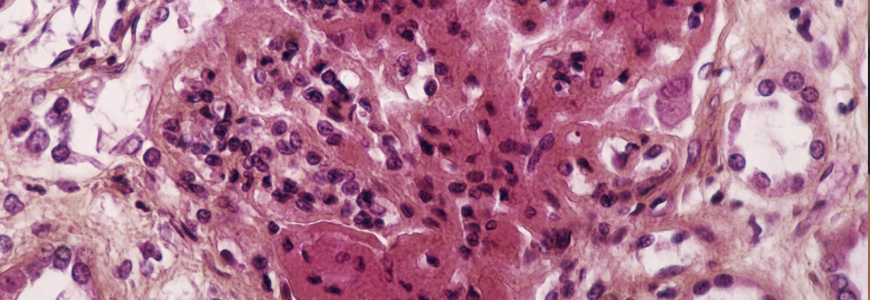Hydroxychloroquine (HCQ) appears to reduce the incidence of disease flares among patients with systemic lupus erythematosus (SLE) during pregnancy and within the three months postpartum, according to findings published in the BMJ Journals’ Annals of the Rheumatic Diseases by a team that included a Duke rheumatologist and epidemiologist. The study helps clarify conflicting guidance regarding the effect of pregnancy on the health of women with SLE.
Study contributors include lead author Amanda M. Eudy, PhD, an epidemiologist and assistant professor in the Duke Division of Rheumatology and Immunology, and contributing author Megan E. B. Clowse, MD, MPH, director of Duke’s Autoimmunity in Pregnancy Clinic—one of the few in the nation serving women who are pregnant or considering pregnancy.
“This study answers the decades-old question of whether pregnancy causes lupus to worsen,” says Clowse. “There were numerous studies published in the 1980s and 1990s trying to answer this question, with more suggesting that lupus worsened in pregnancy.”
The results were based on data collected from patients enrolled by Michelle Petri, MD, MPH, in the Hopkins Lupus Cohort from 1987 to 2015, a patient group that included women ages 14 to 45 years with more than one measure of lupus disease activity. Key findings:
- Among women prescribed HCQ, lupus activity was no more common in pregnancy than outside of pregnancy.
- Among women who were NOT prescribed HCQ, pregnancy and the postpartum period were associated with an increase in flare.
“Having taken care of hundreds of pregnant women with lupus in my 13 years here at Duke, I can confirm that this finding fits well with what we see,” says Clowse, who specializes in the use of anti-inflammatory drugs that help relieve symptoms of rheumatologic disease during pregnancy.
“The pregnancies with the most complications—high levels of disease activity and preterm delivery—tend to happen when women either already have active lupus or they don’t take their medications,” Clowse adds.



